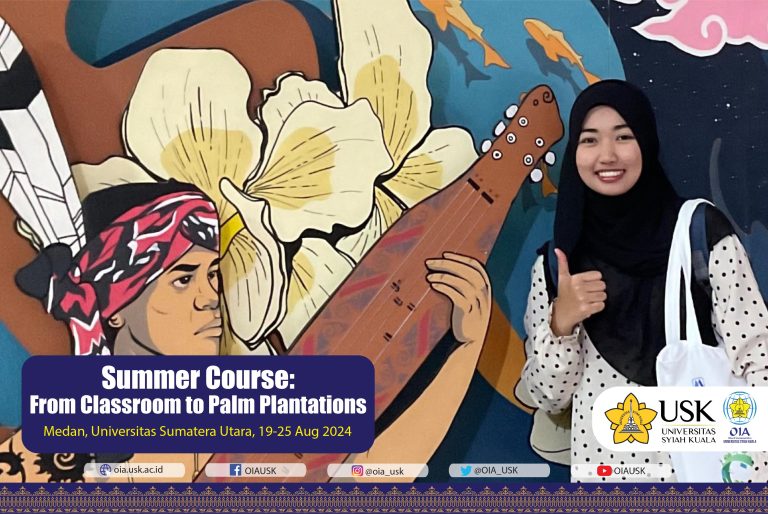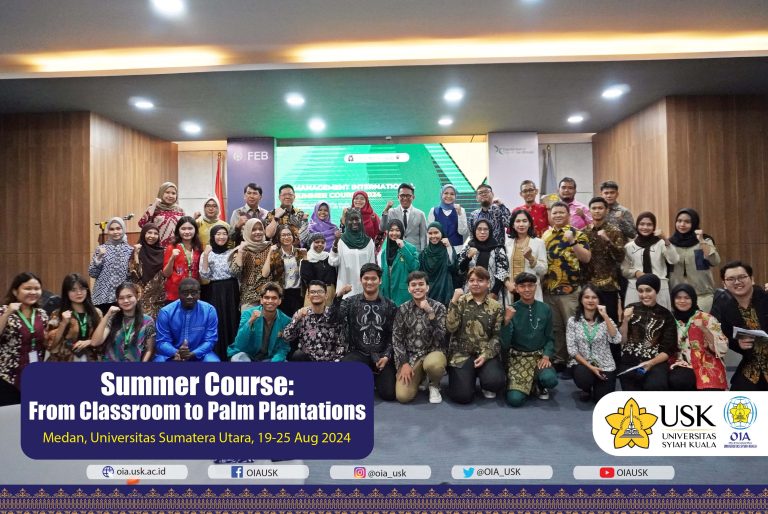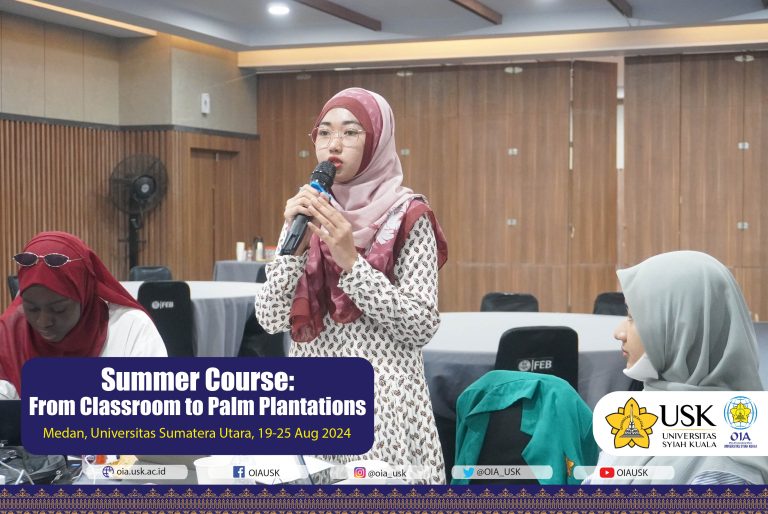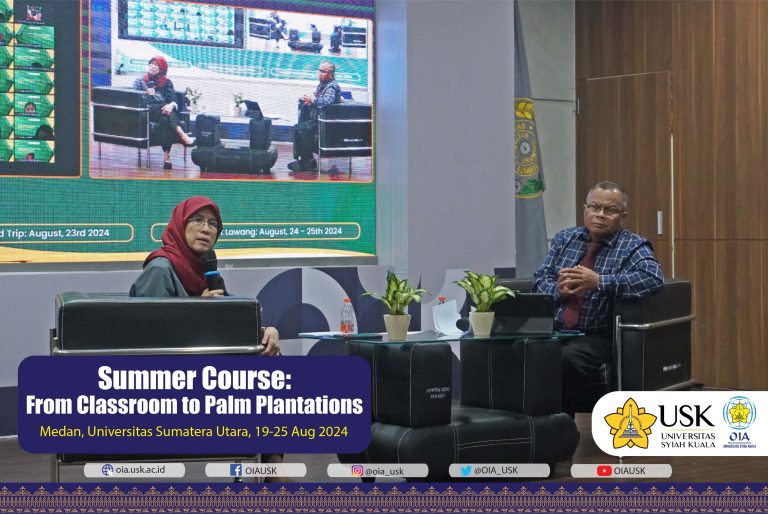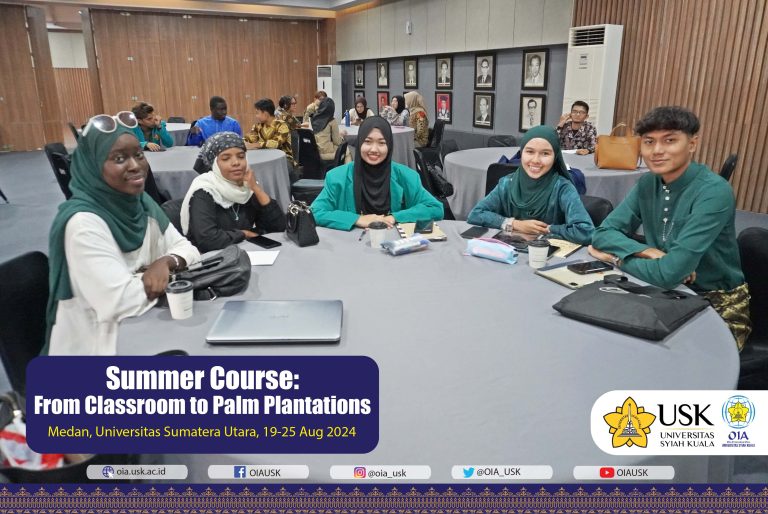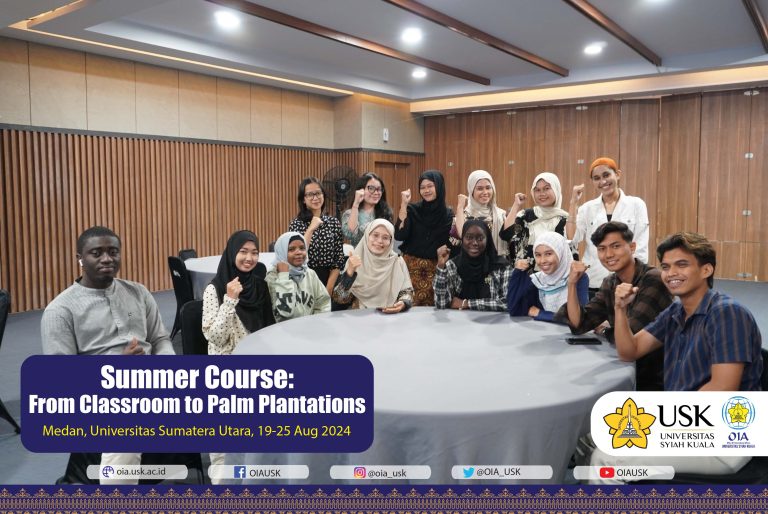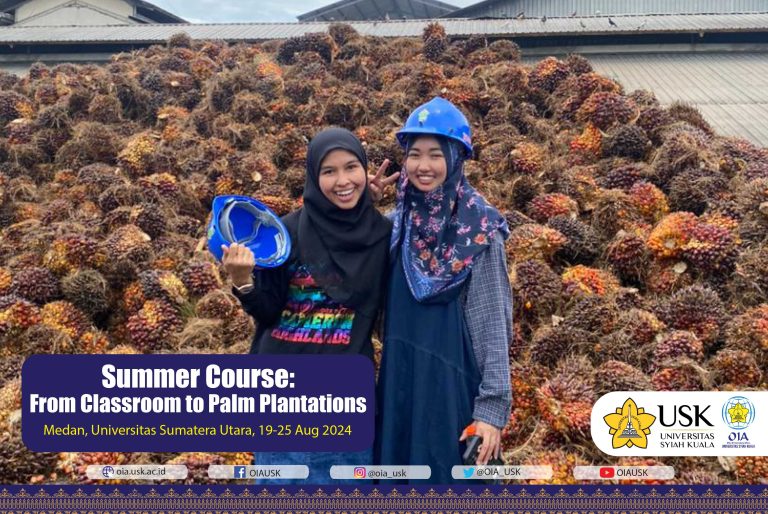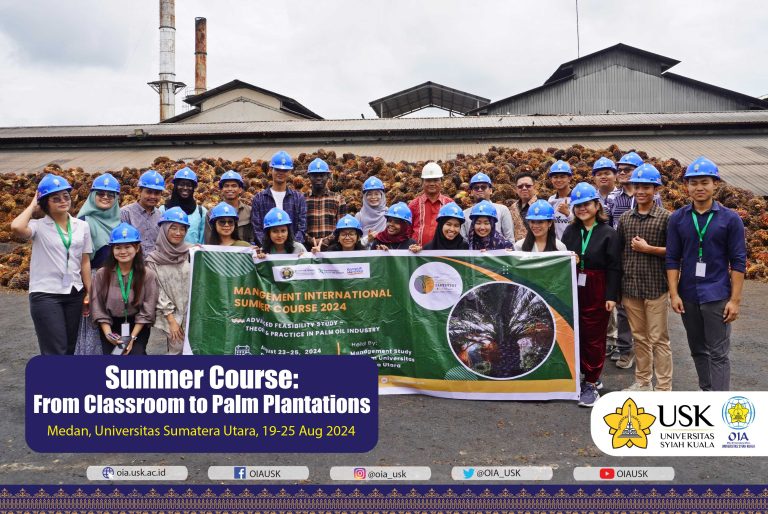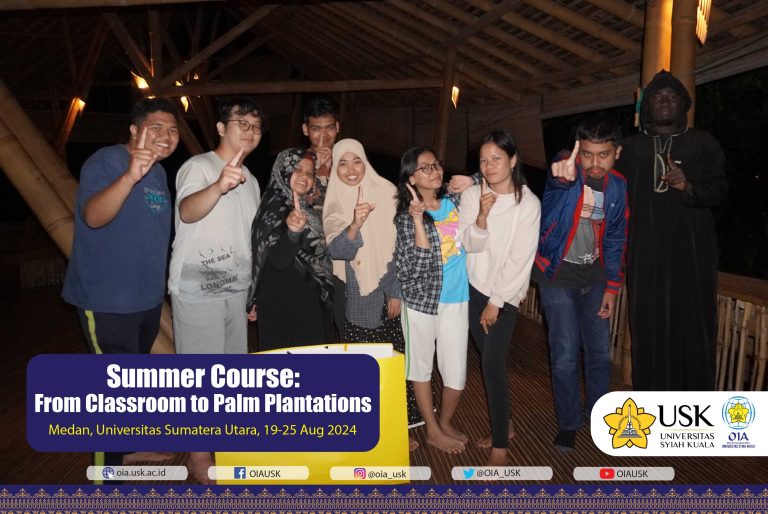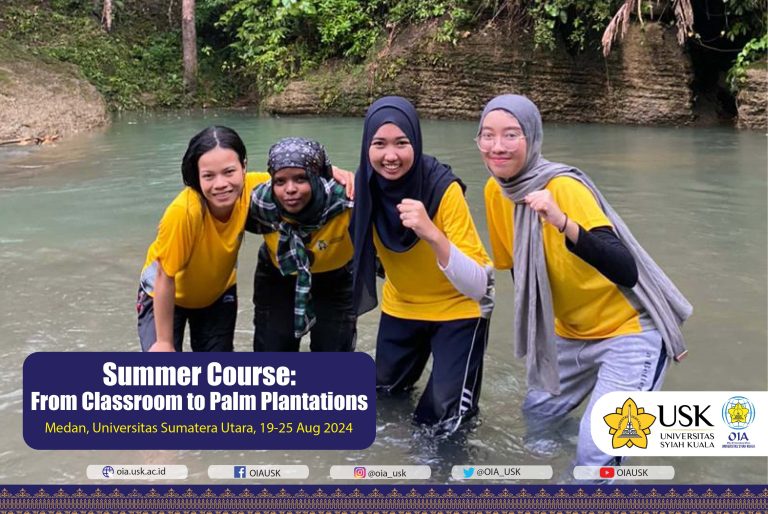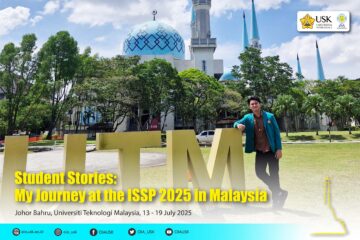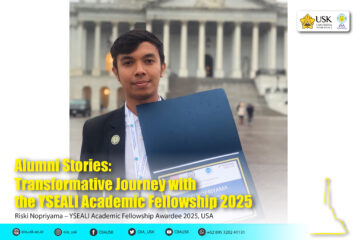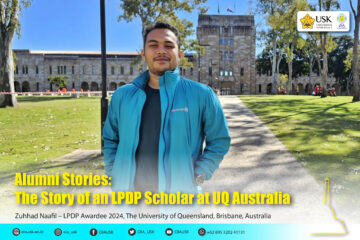Summer Course: From Classroom to Palm Plantations
Published by rahmi on
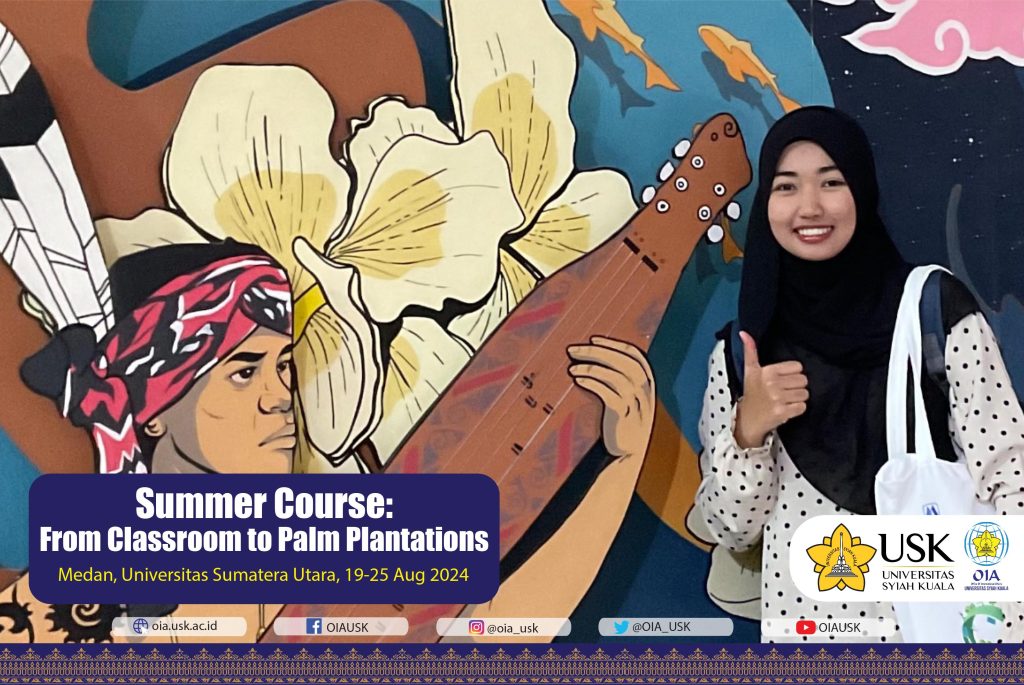
My name is Silanee Klongrua, and I am originally from Krabi Province, Thailand. I am studying at the Faculty of International Islamic Economics at Universitas Syiah Kuala. Recently, I had the privilege of participating in the Management International Summer Course 2024, themed “Advanced Feasibility Study – Theory & Practice in the Oil Industry,” hosted by the Faculty of Economics and Business at Universitas Sumatera Utara, Medan, from August 19 to 25, 2024.
The event began with an opening ceremony that welcomed participants from various countries, including Thailand, Malaysia, Sudan, Gambia, the Philippines, Ivory Coast, and Indonesia. During the first four days, we attended lectures from professors with expertise from different nations. The topics were diverse and insightful.
- On Day 1, the lecture focused on Corporate Finance: Its Relationship to Feasibility Studies.
- On Day 2, the topics covered Risk, Return, and the Capital Asset Pricing Model, followed by Cost of Capital, Cash Flow Estimation, Capital Budgeting, and Corporate Finance and Firm Value.
- On Day 3, the discussions centered around Oil Palm Plantation Investment, Capital Budgeting, and Feasibility Studies.
- On Day 4, we learned about How to Prepare a Financial Feasibility Study in the Oil Palm Industry, Sustainable Finance for Palm Oil Smallholders, and the application of Excel for financial modeling.
These lectures provided us with a broad, yet detailed, understanding of corporate finance and feasibility studies within the context of the oil industry, and more specifically, the oil palm sector. The insights we gained from the distinguished professors were invaluable, offering us a blend of theoretical knowledge and practical applications that are rarely found in standard academic settings. By the end of these sessions, we were equipped with the intellectual framework and the technical skills necessary to analyze financial feasibility and make informed decisions in large-scale, capital-intensive industries.
On Day 5, all participants had the opportunity to visit PT Perkebunan Nusantara IV, one of Indonesia’s leading palm oil processing plants. The visit gave us an in-depth understanding of the entire palm oil production process. We began by observing how palm trees are planted and cultivated, learning about the importance of soil preparation, seed selection, and sustainable farming techniques that ensure high-quality yields. This visit offered a comprehensive overview of the entire palm oil supply chain, from the farm to the factory, deepening our understanding of the industry’s role in both the local and global economy.
Days 6 and 7 were full of adventure as we traveled to Bukit Lawang, a renowned area in Medan famous for its orangutans. We took part in trekking, team games, and rafting, which was the highlight of the trip. My group even won first prize in the team games! The rafting experience, in particular, created unforgettable memories.
I would like to express my heartfelt gratitude to Universitas Sumatera Utara for organizing such an incredible event. I also extend my appreciation to the OIA of Universitas Syiah Kuala for their support in enabling me to participate. This experience has not only deepened my academic knowledge but also enriched my understanding of Indonesia.
